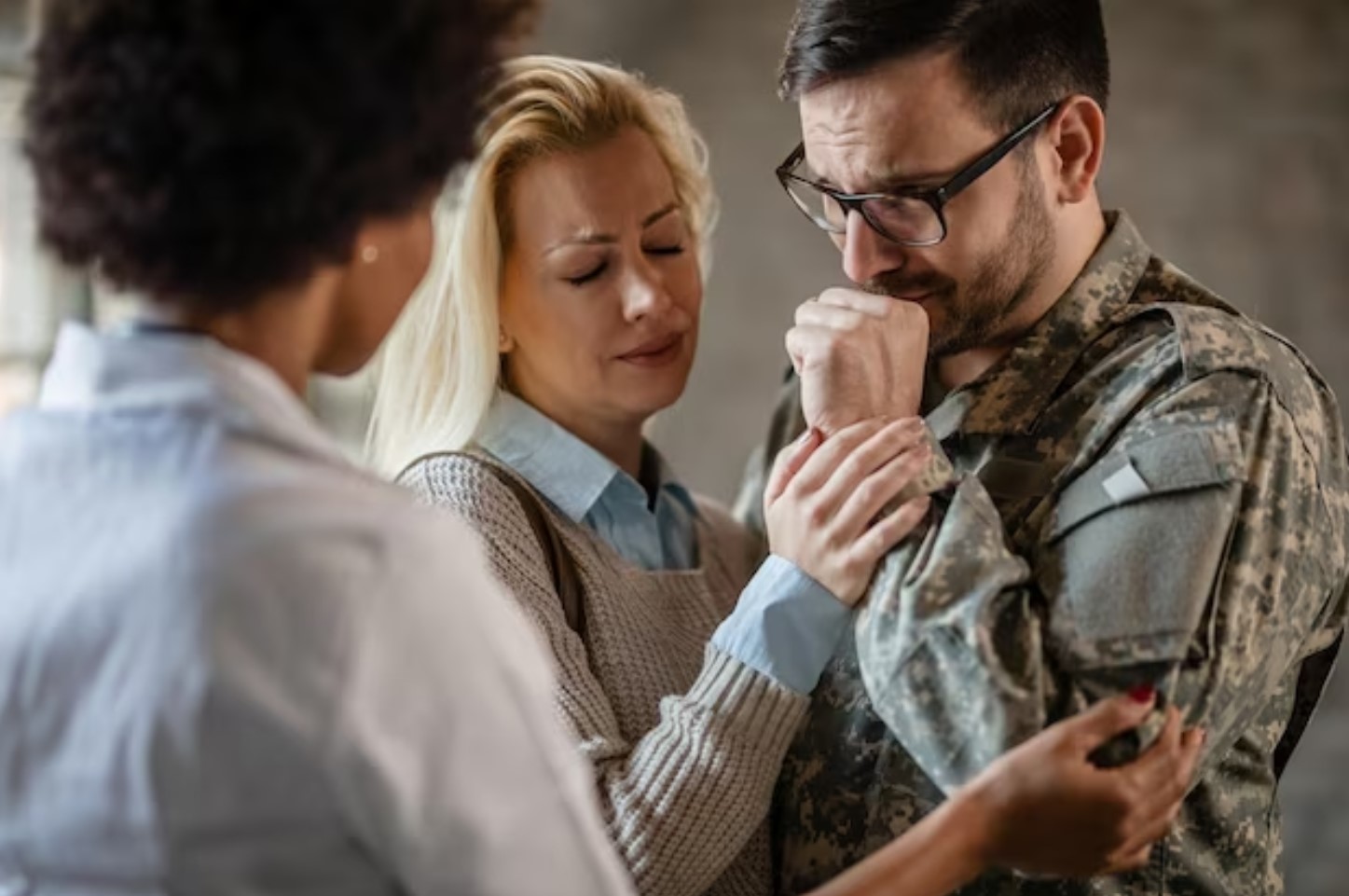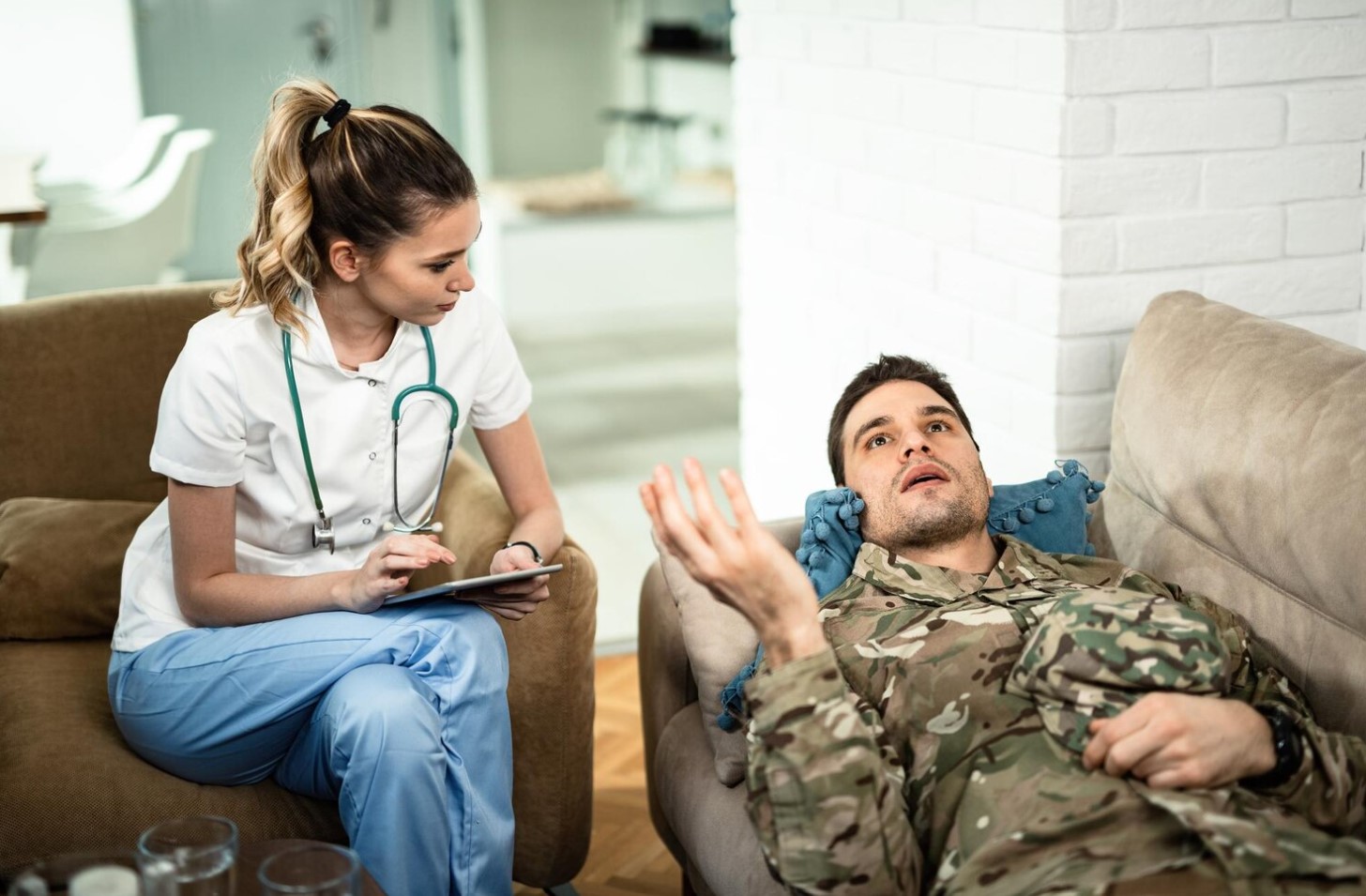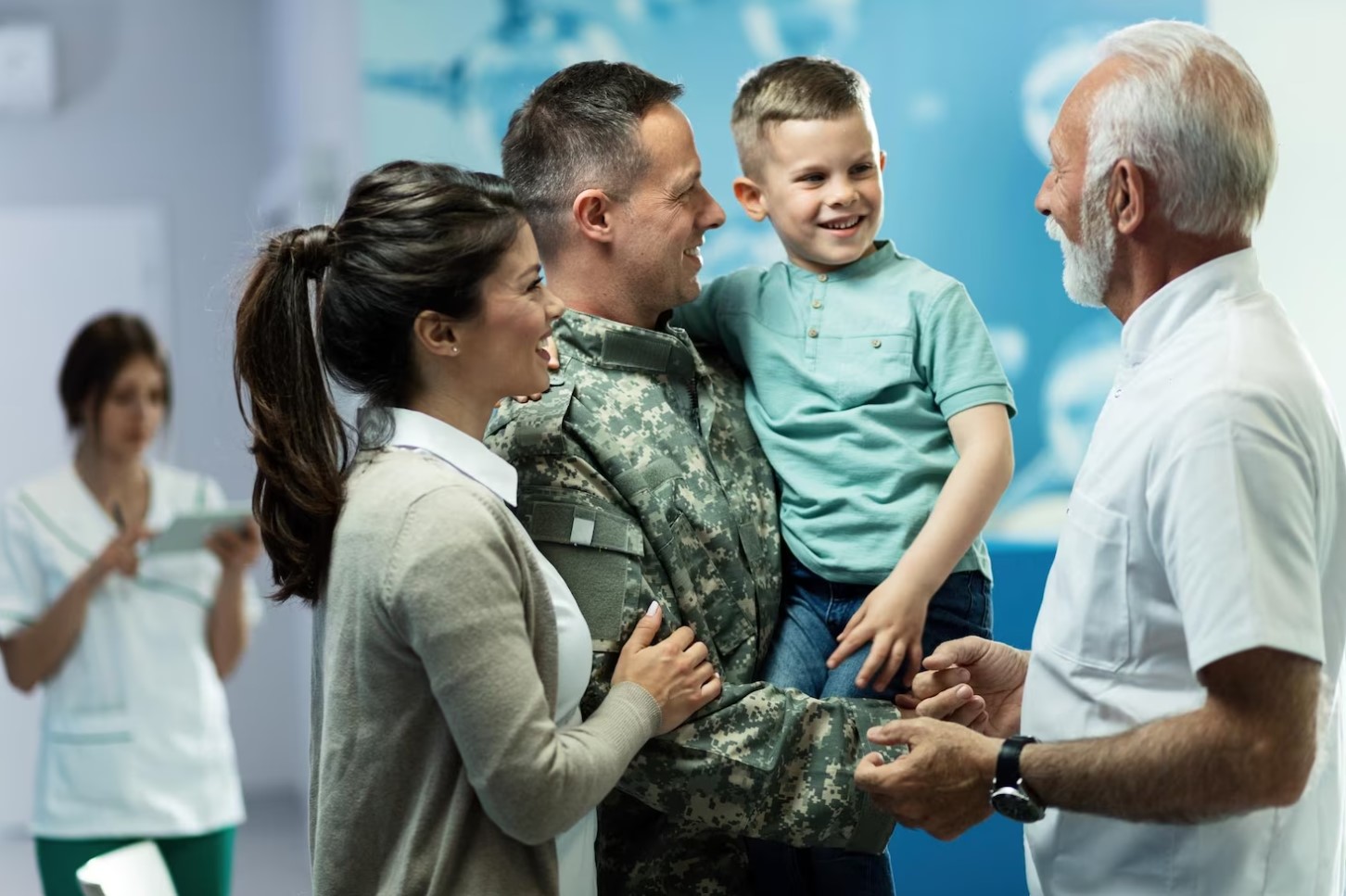
Breaking Through Trauma: Tips and Strategies for Supporting Veterans' Resilience
Oct 09, 2023As a therapist, mental health professional, clinician, psychologist, or caregiver, you play a crucial role in supporting the resilience of veterans who have experienced trauma. Veterans often face unique challenges due to their service and combat-related experiences, which can lead to a variety of mental health issues such as post-traumatic stress disorder (PTSD), anxiety, and depression.
In this blog, we will explore effective tips and strategies that can help you provide the necessary support to veterans on their path to healing and resilience.
1. Establish Trust and Safety:

Creating a safe and trusting environment is essential when working with veterans who have experienced trauma. Here are some ways to accomplish this:
- Active Listening: Practice active listening by giving your full attention, acknowledging their experiences, and validating their emotions. For example, you can say, "It sounds like you've been through a lot, and I'm here to support you."
- Respect Boundaries: Be mindful of personal space and physical contact. Allow the veteran to set boundaries and communicate their comfort level.
- Cultural Sensitivity: Recognize and respect the cultural background and values of the veteran, as it can greatly influence their healing process.
2. Educate Yourself about Military Culture:

Understanding the unique aspects of military culture can enhance your ability to support veterans effectively. Here are a few key points to consider:
- Familiarize Yourself with Military Language and Jargon: Understanding military terms, acronyms, and ranks can facilitate communication and build rapport.
- Be Aware of Military Trauma: Learn about the different types of trauma veterans may have experienced, such as combat-related trauma, military sexual trauma (MST), or the loss of comrades.
- Recognize Military Transitions: Understand the challenges veterans face when transitioning from military to civilian life, including issues related to employment, family, and identity.
3. Utilize Evidence-Based Treatment Approaches:
Several evidence-based treatment approaches have shown efficacy in treating trauma-related issues in veterans. Here are a few examples:
- Cognitive-Behavioral Therapy (CBT): CBT helps veterans challenge negative thoughts, manage distressing emotions, and develop healthy coping strategies. For instance, you can use cognitive restructuring to help veterans reframe their negative beliefs about themselves or the world.
- Eye Movement Desensitization and Reprocessing (EMDR): EMDR is a therapeutic technique that focuses on reprocessing traumatic memories to reduce their emotional intensity and associated distress.
- Trauma-Focused Cognitive-Behavioral Therapy (TF-CBT): TF-CBT is specifically designed for individuals who have experienced trauma. It combines cognitive-behavioral techniques with trauma-focused interventions to address both trauma-related symptoms and associated difficulties.
4. Foster Social Connection and Peer Support:
Encouraging veterans to connect with other individuals who have had similar experiences can be immensely beneficial. Here's how you can promote social connection:
- Support Groups: Facilitate or recommend support groups where veterans can share their experiences, offer support, and gain a sense of belonging.
- Veteran Community Events: Inform veterans about community events, workshops, or programs that provide opportunities for social interaction and engagement.
5. Address Co-Occurring Conditions:
Veterans with trauma-related issues may also experience co-occurring mental health conditions. It is crucial to address these conditions in conjunction with trauma treatment. For example:
- Substance Abuse: If substance abuse co-occurs with trauma, consider referring the veteran to appropriate addiction treatment programs.
- Sleep Disturbances: Address sleep issues by recommending sleep hygiene practices or referring them to specialists if necessary, as sleep problems often accompany trauma-related conditions.
6. Incorporate Trauma-Informed Care:

Adopt a trauma-informed approach throughout your interactions with veterans. This includes:
- Avoiding triggers: Be aware of potential triggers and modify the environment accordingly. For example, if loud noises can be triggering, create a calm and quiet space for sessions.
- Empowerment and collaboration: Involve veterans in their treatment decisions, honoring their autonomy and choices. This can help restore a sense of control and empowerment.
- Self-care and emotional regulation: Encourage veterans to develop self-care routines and coping strategies to regulate their emotions and manage stress.
7. Practice Mindfulness and Relaxation Techniques:

Teaching veterans mindfulness and relaxation techniques can be beneficial in managing trauma-related symptoms. Here are a few techniques to consider:
- Deep Breathing: Teach veterans diaphragmatic breathing exercises to help reduce anxiety and promote relaxation.
- Grounding Techniques: Guide veterans in grounding exercises that help them connect with their immediate surroundings and stay present in the moment.
- Mindfulness Meditation: Introduce veterans to mindfulness meditation practices that promote self-awareness, non-judgment, and acceptance of present experiences.
8. Involve Supportive Family and Loved Ones:

Include the veteran's family and loved ones in the treatment process whenever possible. Their support and understanding can significantly contribute to the healing journey. Here's how you can involve them:
- Psychoeducation: Educate family members about trauma-related issues, symptoms, and the recovery process to help them better understand and support their loved one.
- Communication Skills: Teach effective communication strategies to family members, focusing on active listening, empathy, and validating emotions.
- Family Therapy: Consider offering family therapy sessions to address any relational or communication challenges and strengthen the overall support system.
9. Collaborate with a Multidisciplinary Team:
Collaboration with a multidisciplinary team is essential when providing care for veterans with trauma-related issues. By working in coordination with professionals from different disciplines, you can address various aspects of the veteran's well-being and ensure comprehensive care. Here are a few reasons why collaborating with a multidisciplinary team is beneficial:
- Holistic Approach: Collaborating with professionals from different disciplines brings unique perspectives and skills to the table. Psychiatrists handle medication management and psychiatric evaluation, occupational therapists focus on daily functioning and vocational goals, while social workers assist with community resources. By combining these approaches, you provide a tailored, holistic treatment plan for the veteran's specific needs.
- Specialized Expertise: Professionals from diverse disciplines possess specialized knowledge and skills. Collaboration allows you to tap into their expertise to provide optimal care. For example, an occupational therapist helps with coping strategies, while a psychiatrist addresses medication management for co-occurring mental health conditions.
- Comprehensive Assessment: Working as a team enables a comprehensive assessment of the veteran's needs. Each discipline contributes valuable insights through assessments, evaluations, and observations. Pooling this information provides a comprehensive understanding of the veteran's strengths, challenges, and treatment goals.
- Integrated Treatment Planning: Collaborating with a multidisciplinary team ensures all aspects of the veteran's well-being are considered in treatment planning. Together, the team develops an integrated plan addressing physical, emotional, cognitive, and social needs. This approach enhances intervention effectiveness and increases positive outcomes.
10. Stay Updated with Research and Best Practices:
In the field of trauma and veterans' mental health, staying updated with the latest research, best practices, and emerging treatments is crucial for providing the most effective care. Here's why it is important to prioritize ongoing learning and professional development:
- Evidence-Based Interventions: Stay updated with research to ensure your treatment approaches are based on current and effective strategies. This enhances the quality of care and improves treatment outcomes for veterans.
- New Treatment Modalities: Attend workshops and conferences to learn about emerging treatment modalities and techniques. Integrate innovative therapies like virtual reality exposure or neurofeedback into your practice, benefiting veterans with trauma-related issues.
- Professional Growth: Continuous learning and development as a therapist or mental health professional enhance your knowledge, skills, and competence. Stay updated with research and best practices to provide the best care to veterans and establish yourself as an expert in the field.
Enroll in CEU Outlet's course: 'Finding Balance after the War' to learn effective treatment responses, understand the body's threat response, navigate military culture, consider treatment approaches, utilize assessment instruments, and explore self-care ideas. Earn 15 CE hours while expanding your expertise. Take the leap towards professional growth and enroll now
4. Networking and Collaboration: Participate in workshops and conferences to network and collaborate with colleagues. Connect with professionals who share your interests, leading to valuable collaborations, knowledge-sharing, and the exchange of best practices.
Conclusion:
Supporting veterans in breaking through trauma and fostering resilience requires a compassionate, informed, and multi-faceted approach. By establishing trust, educating yourself about military culture, utilizing evidence-based treatments, promoting social connection, addressing co-occurring conditions, practicing trauma-informed care, teaching mindfulness and relaxation techniques, involving supportive family members, collaborating with a multidisciplinary team, and staying updated with research, you can make a significant difference in the lives of the veterans you serve. Remember, your dedication and expertise contribute to their healing and transformation.




